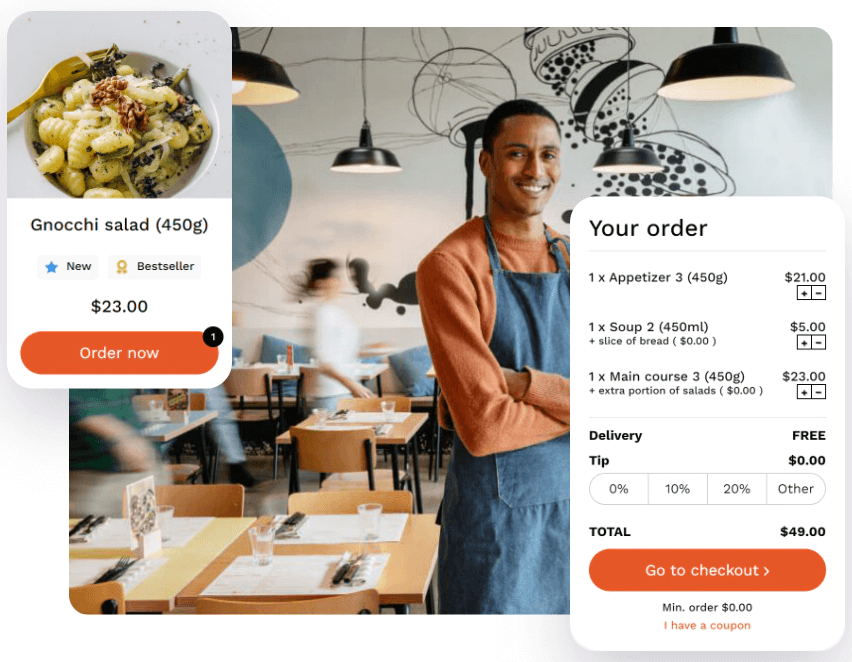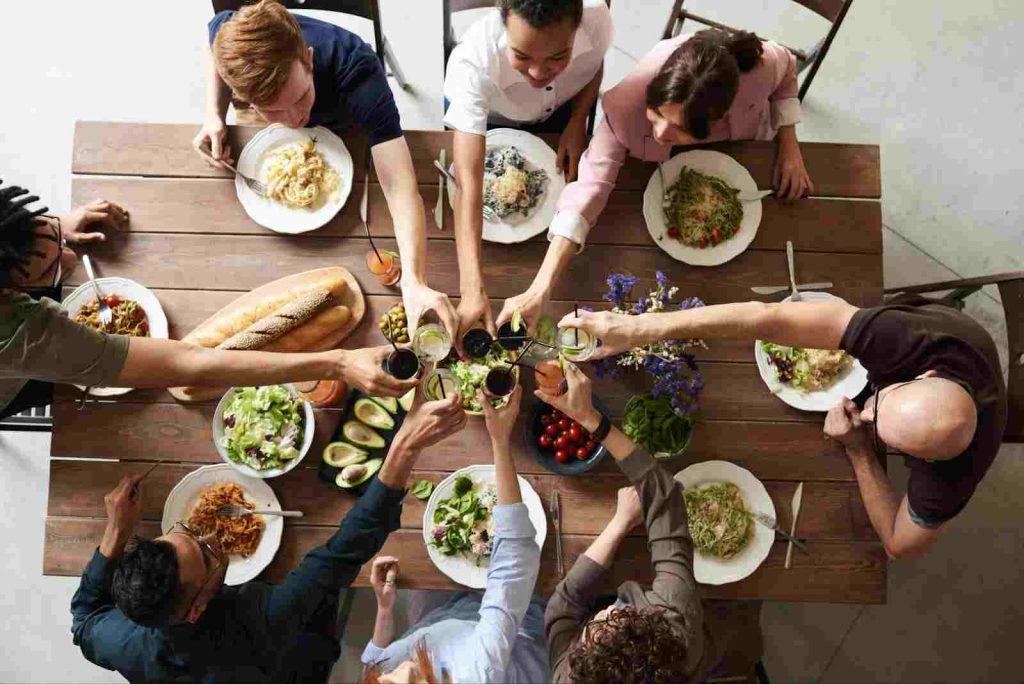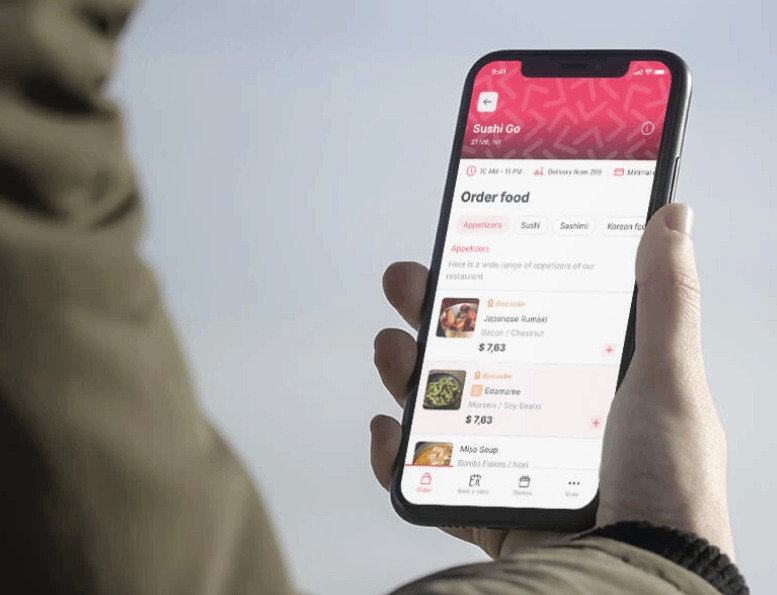The digital age has transformed dining, shifting from traditional phone orders to sophisticated online ordering systems. As restaurants adapt to meet modern consumers’ demands, these systems have become vital, revolutionizing both operations and the dining experience from afar.
Let’s delve into the intricacies of these systems, understand their key components, and explore their undeniable significance in the contemporary restaurant landscape.
The Evolution of Online Ordering
Historically, ordering food meant interacting directly with restaurant staff, often leading to misunderstandings or errors. With technological advancements, industries, previously unimaginable to be digitized, are fully online now. This digital transformation has reshaped the food industry, transitioning from phone calls to advanced platforms, with companies like UpMenu leading the change.
Key Elements of an Effective Online Ordering System

1. User-Friendly Interface
An online ordering system’s success often hinges on its ease of use. As diners increasingly opt for online options, a straightforward and intuitive design, especially on mobile devices, becomes paramount. UpMenu, for instance, prioritizes a seamless user experience, ensuring customers can effortlessly navigate their choices and place orders.
2. Secure Payment Gateway
Trust is vital in any online transaction. A robust online ordering system should offer a secure payment gateway, ensuring customer information is protected. Diverse payment options, from credit cards to online payment systems, give patrons flexibility and confidence in their transactions.
3. Real-time Order Tracking
With today’s technology, customers expect to know their order status in real time. This transparency not only enhances user experience but also builds trust, assuring them that their meal is on its way.
4. Integration with Existing Systems
Software solutions for restaurant businesses should be adaptable. Integration with existing Point of Sale (POS) systems, inventory, and kitchen displays is crucial. UpMenu’s platform, for example, offers smooth integrations, ensuring there’s no disruption in restaurant operations.
5. Customization and Personalization
Modern diners appreciate a tailored experience. Whether it’s customizing a dish or receiving personalized recommendations based on past orders, these features enhance the customer’s journey, leading to increased loyalty.
6. Customer Support & Feedback Mechanism
Ensuring customer satisfaction requires more than just delivering delicious food. A robust feedback mechanism and swift customer support can address concerns and harness insights to improve service continually.
7. Promotions and Loyalty Programs Integration
A standout feature of top-tier online ordering systems is the ability to integrate promotions, discounts, and loyalty programs seamlessly. Such integrations not only incentivize repeat business but also provide opportunities for restaurants to introduce new dishes or offers, keeping their clientele engaged and loyal.
8. Scalability and Flexibility
As restaurants grow, evolve, or even pivot their business model, the online ordering system should be able to adapt without major overhauls. Whether it’s adding new menu categories, integrating with third-party delivery services, or handling a surge in online traffic, the system should offer scalability options and the flexibility to adjust to changing business needs.
Benefits for Restaurants

What does automation mean for your business? In the context of the restaurant sector, automation through online ordering systems unveils a plethora of advantages.
Operational Efficiency:
- Automation significantly improves operational efficiency.
- Faster order processing with online systems.
- Reduced staff workload and minimized human errors.
- Ability to serve more customers swiftly and accurately.
Data Insights:
- Online systems offer a rich data source.
- Analysis reveals customer preferences, peak ordering times, and popular dishes.
- Data-driven tailoring of marketing strategies and menu optimization.
- Potential to predict future sales trends.
Financial Benefits:
- Elimination of intermediaries boosts profit margins.
- Upselling and combo deals are more effective digitally.
- Enhanced profitability as customers are encouraged to add more to their orders.
Customer Experience & Loyalty:
- Automated systems enhance the overall customer experience.
- Personalized recommendations and offers are available.
- Loyalty programs foster brand loyalty.
- Deepened connections with patrons ensure repeated visits.
By harnessing the power of automation, restaurants are not only ensuring they stay relevant in a digitized world but also paving the way for sustainable growth and heightened customer satisfaction.
Potential Challenges

While online systems offer numerous advantages, they come with their own set of challenges. Ensuring data privacy and security is paramount. With increasing demand, restaurants must also ensure timely deliveries without compromising on food quality.
Future of Online Ordering
The next frontier in online ordering is driven by AI and machine learning, aiming to further enhance user experience. Additionally, with the rise of the Internet of Things (IoT) and smart homes, we might soon see integrations that allow your fridge to suggest and order meals based on its contents!
Drones and autonomous vehicles are also being eyed as the next delivery revolution, ensuring faster and contactless delivery experiences. Moreover, with advancements in predictive analytics, restaurants might be able to predict and prepare a regular customer’s order even before they place it, truly redefining on-demand service.
Summary
The rise of online ordering systems, especially platforms like UpMenu, has undeniably reshaped the restaurant landscape. As the line between software solutions for restaurant business and traditional operations blurs, it’s evident that the future of dining is digital, personalized, and driven by technology.
These systems’ continued evolution showcases the culinary world’s adaptive nature and the critical role of technological integration in its growth. Restaurants that harness this digital shift ensure their relevance and promise an enhanced dining experience for their patrons.




Comments are closed.